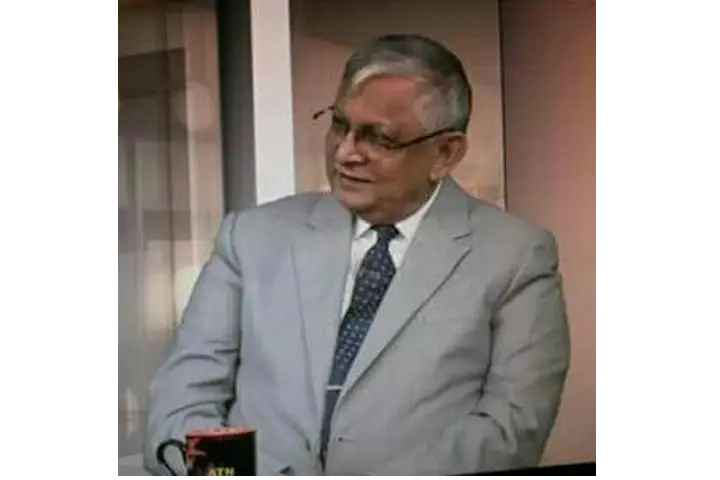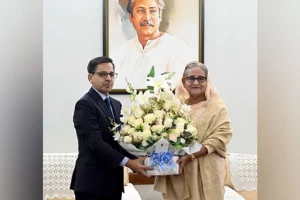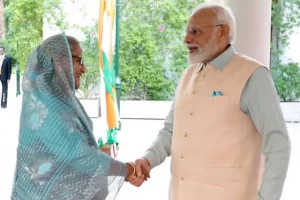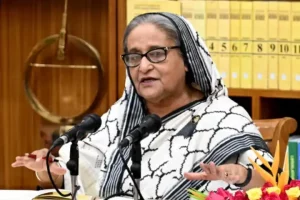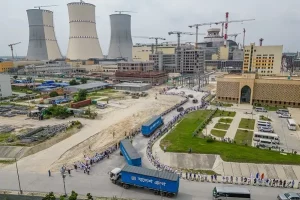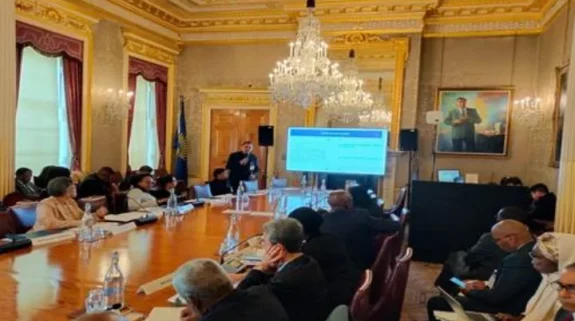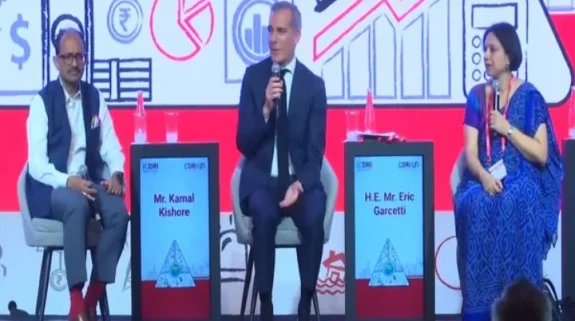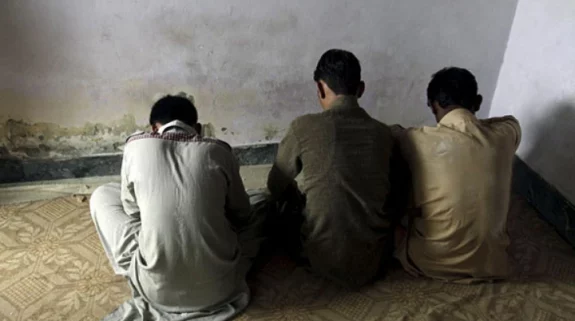Connectivity has emerged as the main thrust as India and Bangladesh celebrate 50 years of friendship amid shifting geopolitical dynamics and increased focus on the Bay of Bengal. “We cannot expect that India will prosper with Bangladesh in poverty or vice versa.. The future of India and Bangladesh are tied and intertwined with each other,” Ishfaq Ilahi Choudhury, who served as air commodore in Bangladesh’s Air Force said in an exclusive interview to India Narrative.
As the two neighbours press the pedal on boosting road, railway and river connectivity, Choudhury who has underlined the need to keep the thrust on the Bangladesh-Bhutan-India-Nepal (BBIN) initiative and BIMSTEC (Bay of Bengal Initiative for Multi-Sectoral Technical and Economic Cooperation) said that this is “just restoring whatever was there.”
“Bay of Bengal is increasingly in focus. So we need to develop our relationship, we need to develop our confidence,” he said.
“Connecting Bhutan and Nepal with us in the BBIN and of course Sri Lanka..will be important strategically,” he said.
Pointing out that New Delhi is investing “a lot more in infrastructure,” Bangladesh’s two export processing zones—one in Chittagong and the other in Khulna will significantly benefit the Indian side.
He pointed out that Khulna, which is close to the Kolkata border will serve as a win-win option for both countries as the Indian investors can set up their manufacturing plants in this zone from where and they can export back into the country.
“Right now there is a problem of trade balance.. Of $10 billion, $9.2billion is in favour of India and we are only exporting $800 million,” Choudhury said, adding that the Khulna export zone will largely address this issue.
🇮🇳🇧🇩 | Today we mark 50 years of India recognizing an independent, sovereign Bangladesh.
India was one of the first countries to establish bilateral diplomatic ties with Bangladesh on December 6, 1971. #मैत्री_दिवस #মৈত্রী_দিবস #MaitriDiwas pic.twitter.com/XZmPs2mDHD
— Arindam Bagchi (@MEAIndia) December 6, 2021
The setting up of manufacturing units will also generate jobs in Bangladesh.
In another significant development, India’s Hindustan Construction Company won a $110 million contract for civil works of the Rooppur nuclear plant in a joint venture with Bangladesh’s MAX Group. The Indian company enjoys a 40 per cent stake in this critical joint venture.
Also read: 1971 war veterans honoured as 50th anniversary of the liberation of Bangladesh inches closer
Choudhury said that the fact that India has been entrusted with maintaining the security and supervision of the nuclear plant is a “huge positive thing” that “not many people are talking about.”
Choudhury also said that while India is keen to work with Myanmar on the Kaladan project, a more efficient alternative can be provided by Bangladesh at a time when talks on proposed free trade agreement are gaining ground.
“You don’t need to spend billions there..you persuade us..we will offer you Chittagong Port, which is the natural port for northeastern India. Why go all the way to the hills?,” he said. He added that another port in Payra is also coming up. Though it is not a deep sea port it can be an important link for Nepal and Bhutan. However to integrate the region and increase connectivity, “streamlining” the finer points will be critical, the former war veteran said.
On China
“Let me also address the issue of our northeastern neighbour China..I strongly believe that just like Pakistan, China also needs to have friendly relations with India and India needs to have friendly relations with China and because there is $100 billion business (that) is going on between the two countries..(this) cannot be ignored,” Choudhury said. He noted that the business community can cement the much- needed regional ties.
On misunderstandings, violence and the role of the media
Choudhury pointed out that there are vested interests in both sides that want violence and untoward incidents to continue between the two sides but in this the worst impacted are the poorest of poor.
Religious fundamentalism across the region including India and Bangladesh needs to be addressed, he said.
“This time for the first time in our history..we had. ..trouble during Durga Puja,” he said. “Everyone looks forward to it, we call it Sarbojonin puja.. everyone participates in this..some participate religiously, some participate by going for shopping, some participate by just visiting the puja mandaps.. and myself visit with my family,” he said, adding that however this time some untoward incidents of violence that occurred went viral through the media.
“What goes on in India today affects Bangladesh the same day.. not tomorrow (but) the same day. If there is a person who is lynched…, and that is videoed ..photographed.. it straight away goes into the (social) media..it goes viral,” he said. Because of the power of social media, there is a similar response In India if something untoward happens in Bangladesh too.
Also read: President Ram Nath Kovind's visit to Bangladesh will be much more than just a symbolic event
Choudhury’s message– What you need to do is to propagate the real picture, promote the cultural side that binds the two countries..the message of Sufi or the Vaishanavi tradition that underscore harmony needs to be promoted. For the next fifty years the challenge is to build on physical connectivity and foster emotional connectivity between the two people.
The government run media particularly can play a role by promoting films and other literary and art forms that uphold the message of harmony and oneness, the war veteran said.
“I used to wake up with the sound of Azaan in Lucknow and also in Nainital..India has the largest number if mosques in the whole world but these (are not the) news are not spreading,” Choudhury said.






